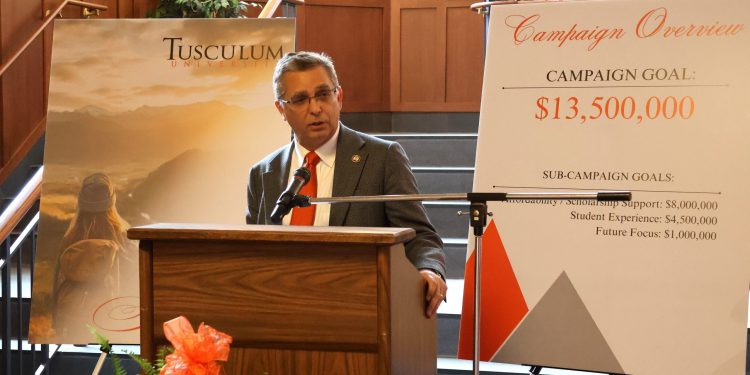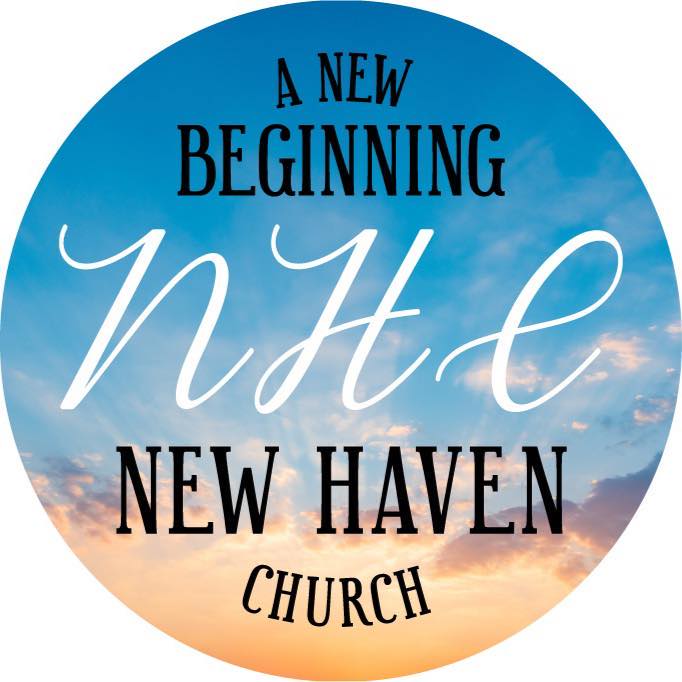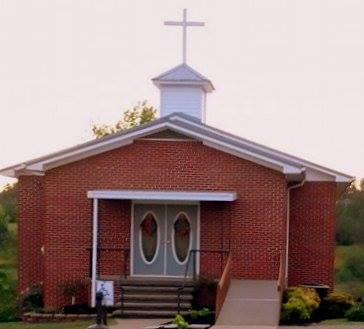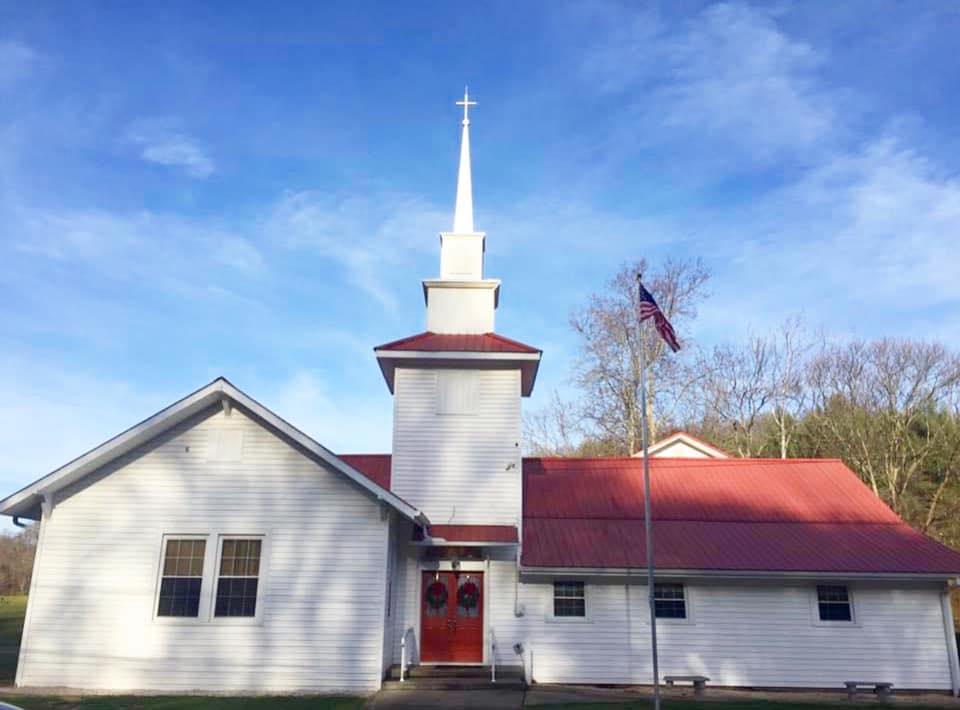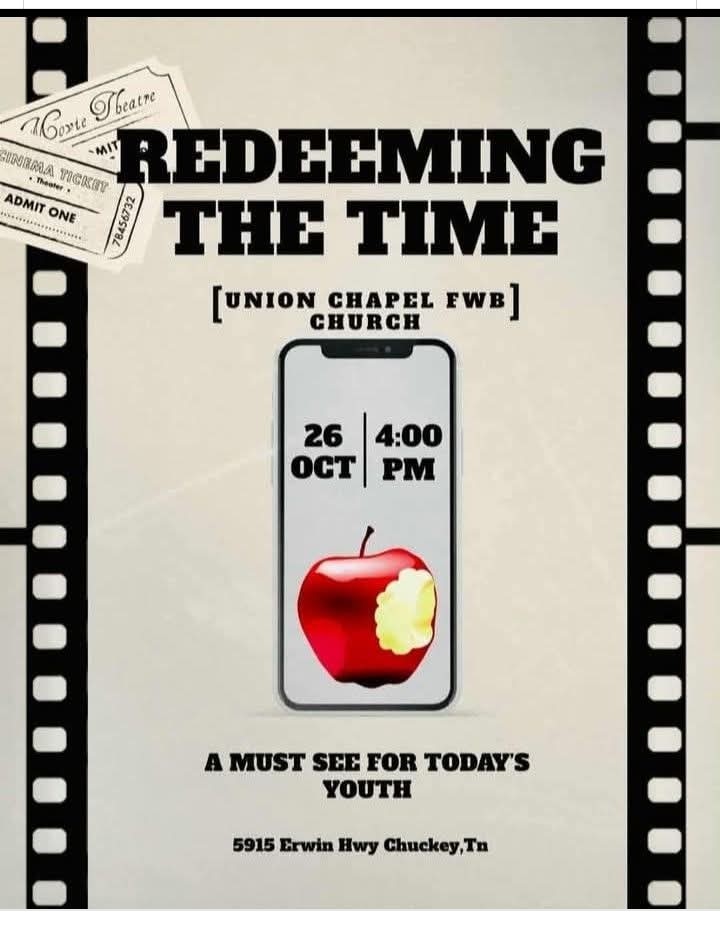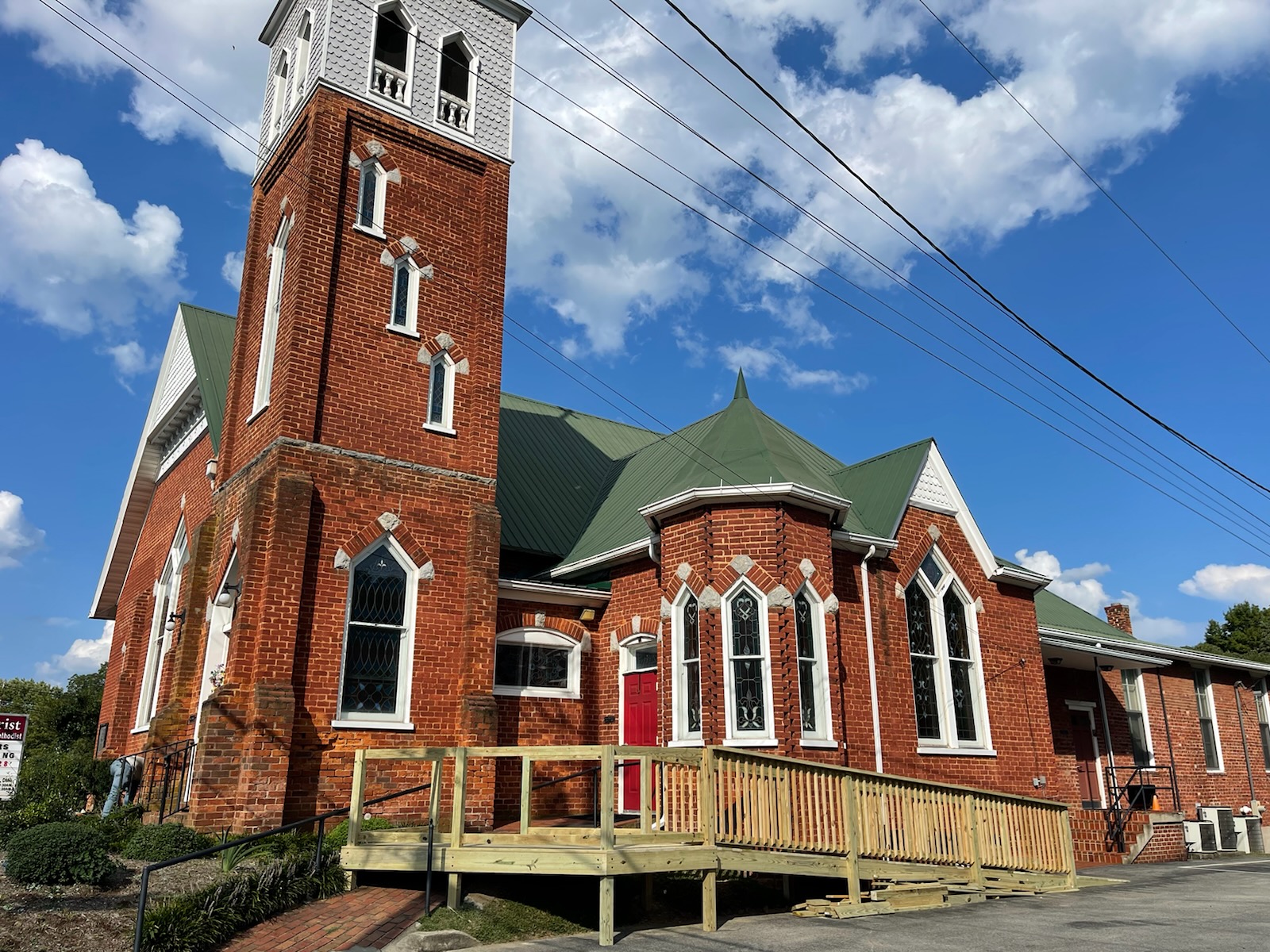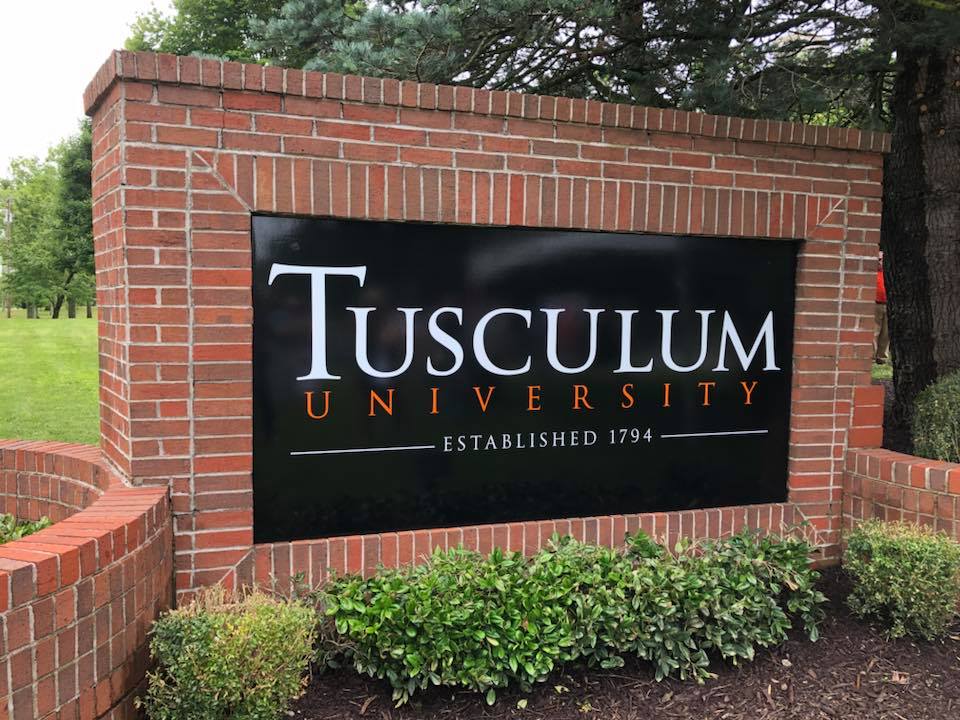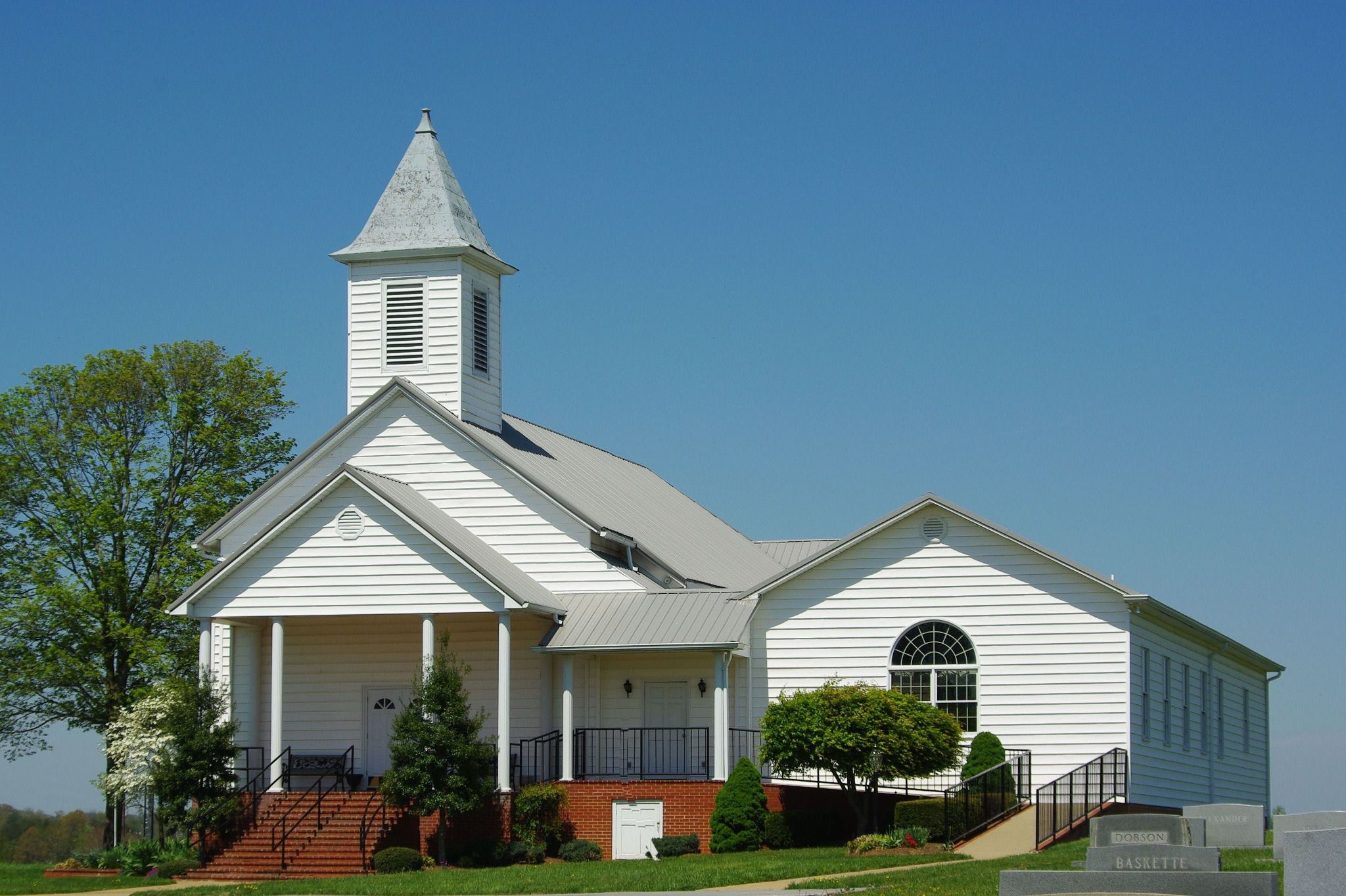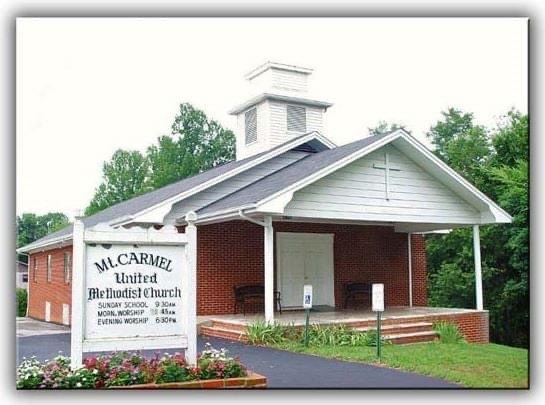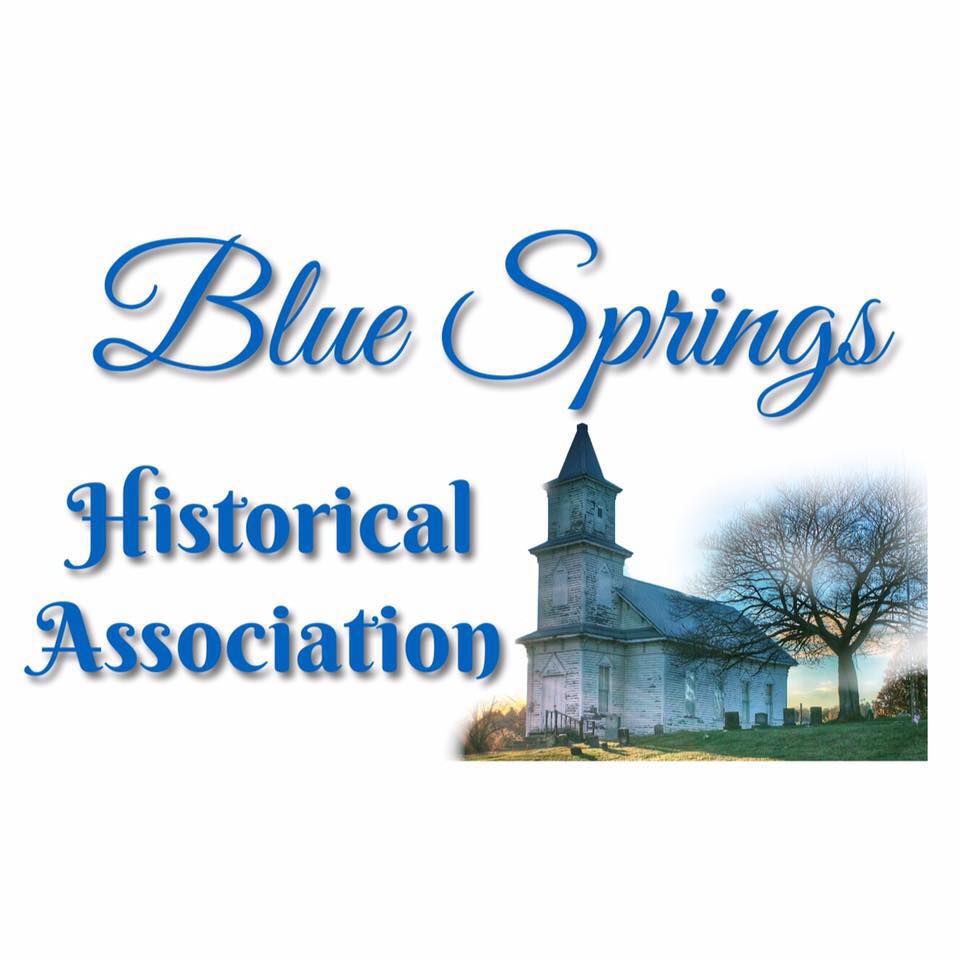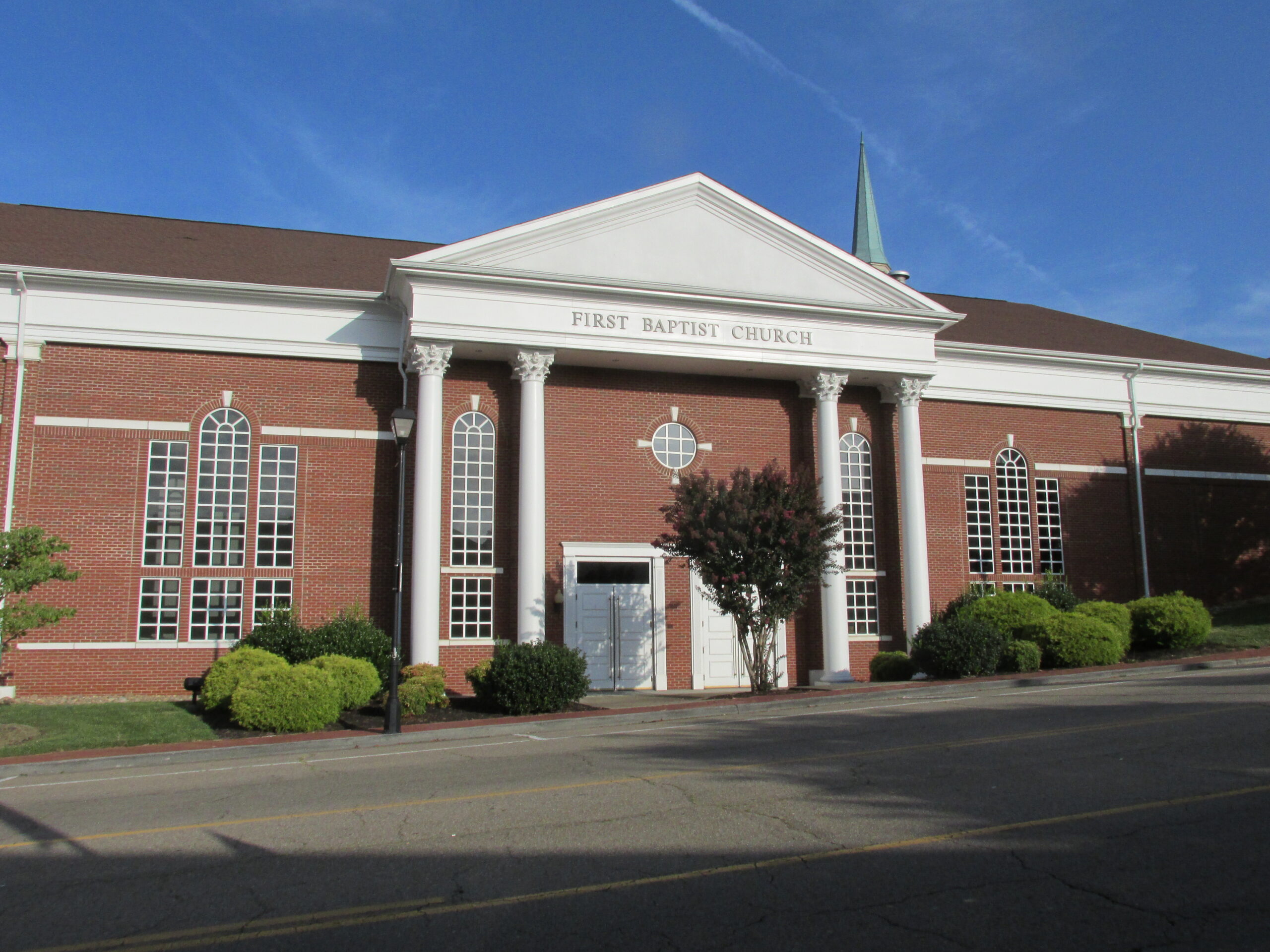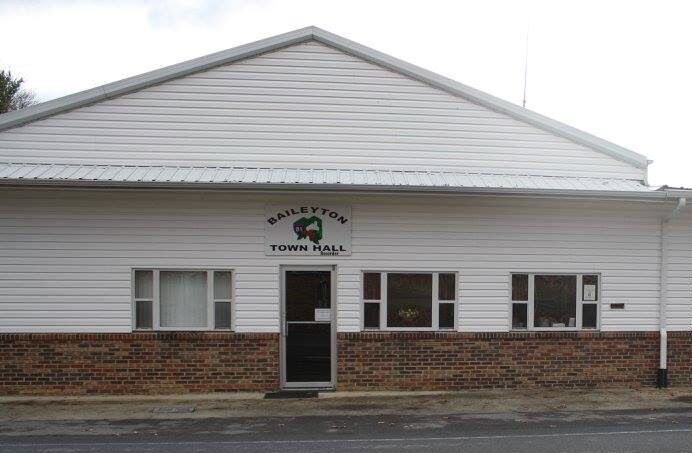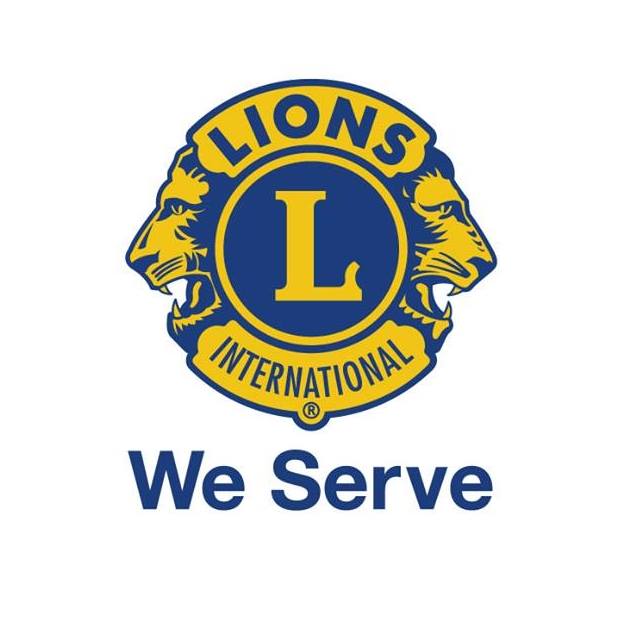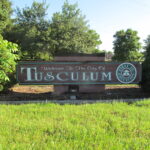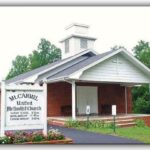GREENEVILLE – Rich history intersected with an eye toward the future Tuesday at Tusculum University as Tennessee’s first higher education institution reflected on a special anniversary for one of its more prominent landmarks and publicly launched a new $13.5 million fundraising campaign.
Tusculum commemorated the 20th anniversary of the completion of the Thomas J. Garland Library renovation and expansion, which tripled the building’s size, and unveiled the Frontiers campaign, a four-year initiative that is focused on donations toward scholarships, the student experience and projects that will build on Tusculum’s success. The event was held in the library.
“Our library is much more than a building filled with books,” said Dr. Scott Hummel, Tusculum’s president. “It is filled with people who help our students to discover and obtain information and know how to use it. Tusculum University’s approach to education is to provide access not just to college but also to graduation. Individuals and organizations that support the Frontiers campaign are helping our students achieve that milestone by providing the financial and other resources they need to achieve their dreams.”
The library’s history
Kathy Hipps, the library’s director, an employee there since 2002 and a Tusculum alumna, highlighted the history of the building. She said the original portion of the building, then known as Carnegie Hall, was constructed in 1910 as a multipurpose structure with a $21,000 donation from steel magnate Andrew Carnegie.

The main floor served as the basketball court with spectators sitting around the track on the floor above. The area on the second floor that now houses study rooms and the online and master’s students lounge held the collection of 8,000 books. The building’s total size was about 12,000 square feet.
In the early 1930s, the library took over the entire building, and the name was changed to Carnegie Library. In 1991, the building was updated, and the building was renamed the Albert Columbus Tate Library as a result of a donation from Edna Tate, a Tusculum Board of Trustees member.
Then in 2003, the library relocated to the Old Gym for two years while crews undertook the renovation and expansion. When, the project was completed, not only did the library have space for its collection of more than 40,000 books, but the building also featured new rooms for them as well as additional places to study and new classrooms on the lower level. The building expanded to 36,000 square feet.
Today, the library has more than 47,000 print books, instant access to more than 400,000 electronic books and thousands of electronic journals. Personal reference assistance is available in person and electronically. The building also has stunning views of the mountains from large windows and a beautiful patio.
Hipps attributed much of the library’s success to Jack Smith, her predecessor as director. He oversaw the library for 25 year and played an integral role in the library’s renovation and expansion, she said.
Even with all of the resources available to students, Hipps envisions additional ways Tusculum can help the students.
“We still have students who don’t have the necessary technology to access resources,” Hipps said. “I have seen students trying to conduct research or do their homework on their phones because they can’t afford a computer. We can’t buy everyone a computer, but I would love to have the resources to provide loaner laptops for those students.”
Hipps said continuing technological upgrades are necessary to run the library and generous donations from donors enable the facility to serve as a key part of the university.
“Thank you so much to those who donated to the campaign 20 years ago, and to all those who have or will continue to financial support the library,” Hipps said. “You are making a difference in the education of our students and are helping prepare them to be career-ready professionals.”
The Frontiers campaign
The breakdown for the Frontiers campaign is $8 million to increase scholarship support, $4.5 million to bolster the student experience further and $1 million to back future projects and programs.
In addition to funds students can access from the state and federal government, Tusculum assists them through other avenues, such as institutional scholarships. In fact, Tennessee students who are eligible for the full federal Pell grant and have a grade point average of at least 3.0 are eligible to attend Tusculum tuition-free as part of the Pioneer 100 scholarship, which also includes state and institutional funds.
Many individuals have established endowed scholarships to support students, and some organizations also provide scholarship for those who attend Tusculum. Dr. Hummel noted that assistance for students whose parents or guardians do not have a bachelor’s degree is crucial because it not only impacts the quality of life for that one individual but the generations that follow in that person’s family.
Jaida Ellison, a senior pursuing a degree in communication, emphasized the importance of finances in describing her college experience. She has benefited from scholarships.
“Because of these scholarships, I have been able to pursue my degree with little stress outside of the normal panic with deadlines, but they have made the stress come from the work without worry about my tuition,” Ellison said. “Because of the importance of scholarships to me and this university, it has opened doors for opportunities like this where I have the privilege of speaking to you all today. Without the support of faculty and those who take time to help Tusculum students financially, we wouldn’t be here today with the opportunities that the university has given us.”
Janelle Zirger, a senior who is seeking a bachelor’s in criminal justice with a minor in psychology, has participated in many student experience activities that will benefit from the infusion of donations through the Frontiers campaign. These include Pioneer WOW, a program to welcome new students; the Bonner Leaders Program, a community service group; and the Center for Academic Success and Tutoring, which she described as a second home to her and where she serves as a tutor.
Other programs and facilities that will benefit from additional dollars include campus ministries, the Center for the Arts, the Center for Civic Advancement, club sports, the Honors Program and the Wellness Center.
“I have learned valuable career and life skills, along with knowing I have someone to turn to for help in school, but also in life,” Zirger said. “A student’s experience is not complete, without graduating and knowing you have a whole army behind you.”
As Tusculum turns toward the future, it has its eyes on many initiatives, some of which are in their early stages of implementation but need additional funds and others that will be coming in the future.
One of the newer examples is the Christian Leadership Institute. This is a three-phase program designed to draw students closer to God, help students discover their calling, create a Christian leadership major and community-centered programs and conferences for Christians from a variety of fields. The institute has already implemented the Discipleship Living-Learning Center, where students live in community with like-minded students and are formed for lives of service and leadership as they build their relationship with the Lord.
Another is the Center for Free Enterprise and New Venture Creation, which provides Tusculum students with the coursework and mentorship they need to develop successful business proposals. These students, along with community members and high school students, will have an opportunity to pitch their ideas to potential investors in the spring.
Two academic programs that are in the works are a master’s degree in supply chain management as well as a master’s degree in leadership, which will have focus areas such as hotel hospitality management, human resources and nonprofit and faith-based leadership. Dr. David Cook, provost and vice president of academic affairs, said the university was also looking at longer-term initiatives in the STEM field. In addition, Tusculum will be able to build on its reputation for undergraduate research, which has resulted in many students receiving summer stipends through the Appalachian College Association and presenting at national conferences.
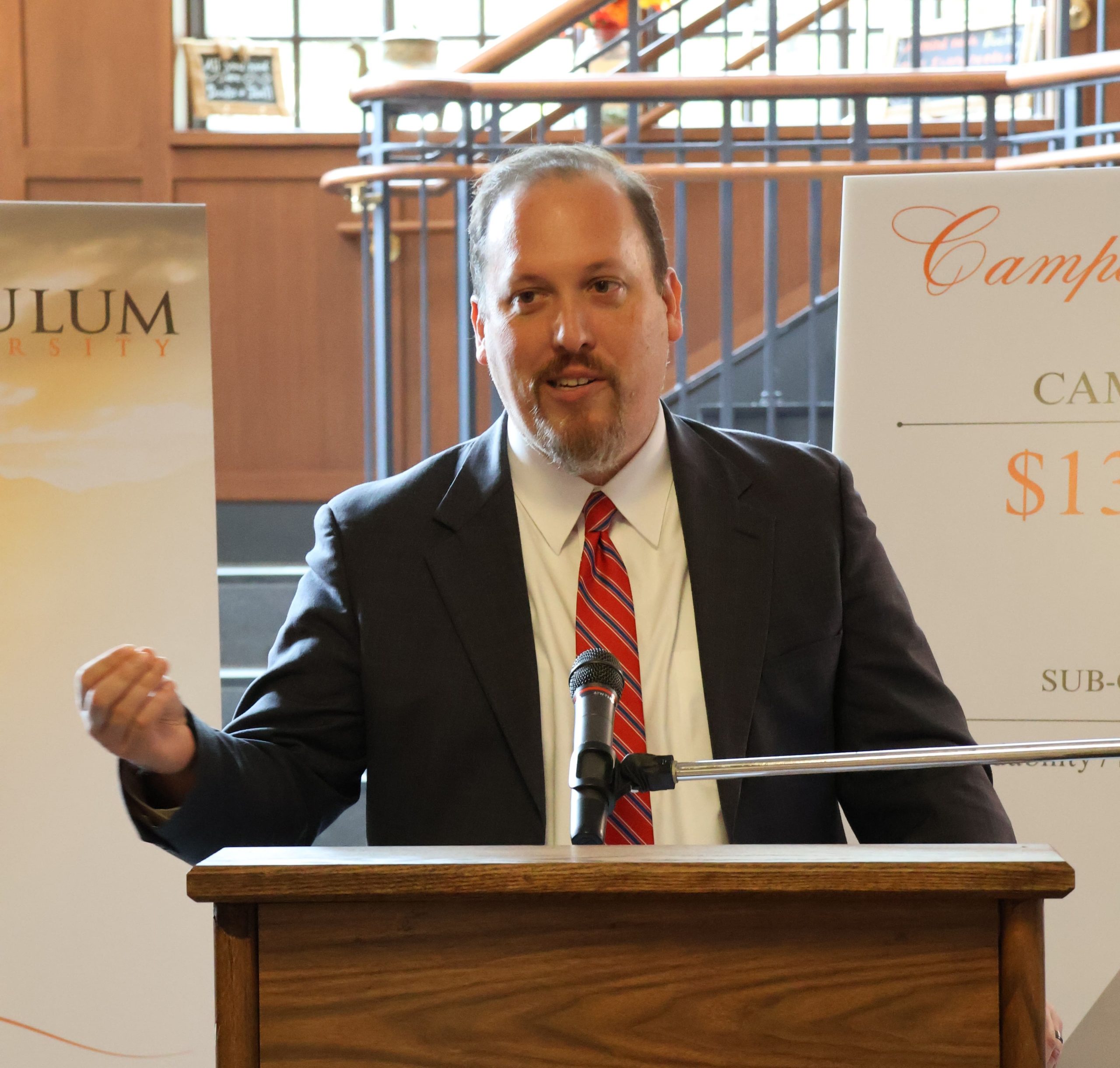
“We’ve got several new focuses, but they’re really about trying to provide that caring Christian environment to prepare students who can lead well, who are career-ready and who have that experiential learning expertise that will help them not just get a job but really propel them into something special that serves the community,” Dr. Cook said. “We hope these programs will touch these students and impact their lives in a meaningful way.”
The meaning of the campaign
As he reflected on the campaign, Edward Roberts, vice president of institutional advancement, tied its theme to Tusculum’s history. Tusculum was founded in 1794.
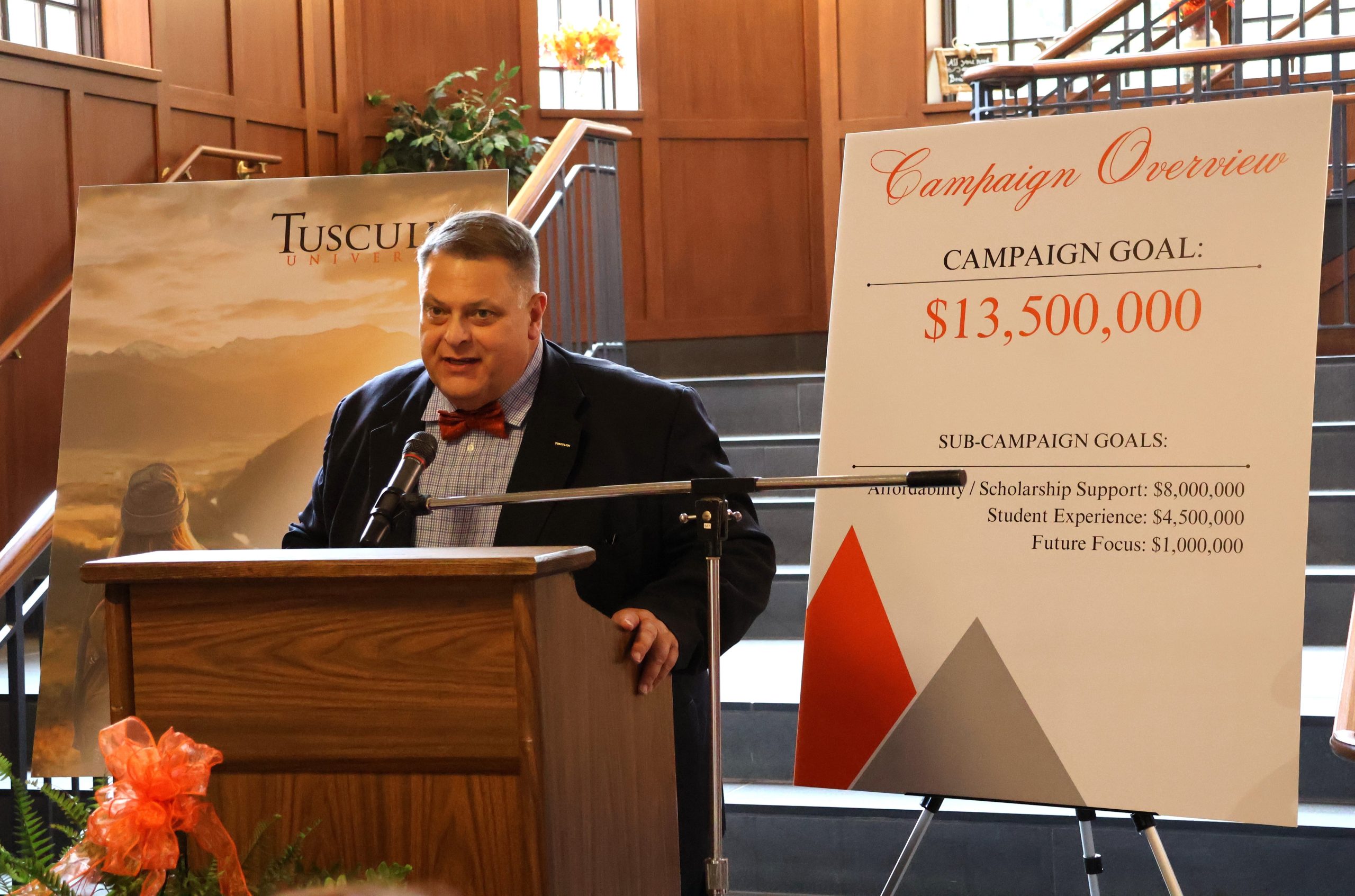
“Tusculum University was founded on the frontier itself,” he said. “Our nation was just a few years old. We were on the edge of the frontier. We were founded to serve and educate our students and our community on the frontier. That’s really not changed 231 years later. Pioneers have always been focused on the future. Help us to continue to look to the future, to move into what the frontier may hold for us. Help us get the word out. Make a gift. Every dollar counts.”
Dr. Hummel said people can make a difference financially through a donation, whether that is a singular contribution, a pledge, regular gifts or planned giving. The university is also open to discussing naming opportunities.
“A donation helps ensure that you secure the future of the university and our future students,” he said. “Give to this campaign, give to the university but, most importantly, give to our students.”
To make a gift,
Please visit www.tusculum.edu/giving. People can also contact Roberts to discuss the campaign further at [email protected] or 423-636-7303.


